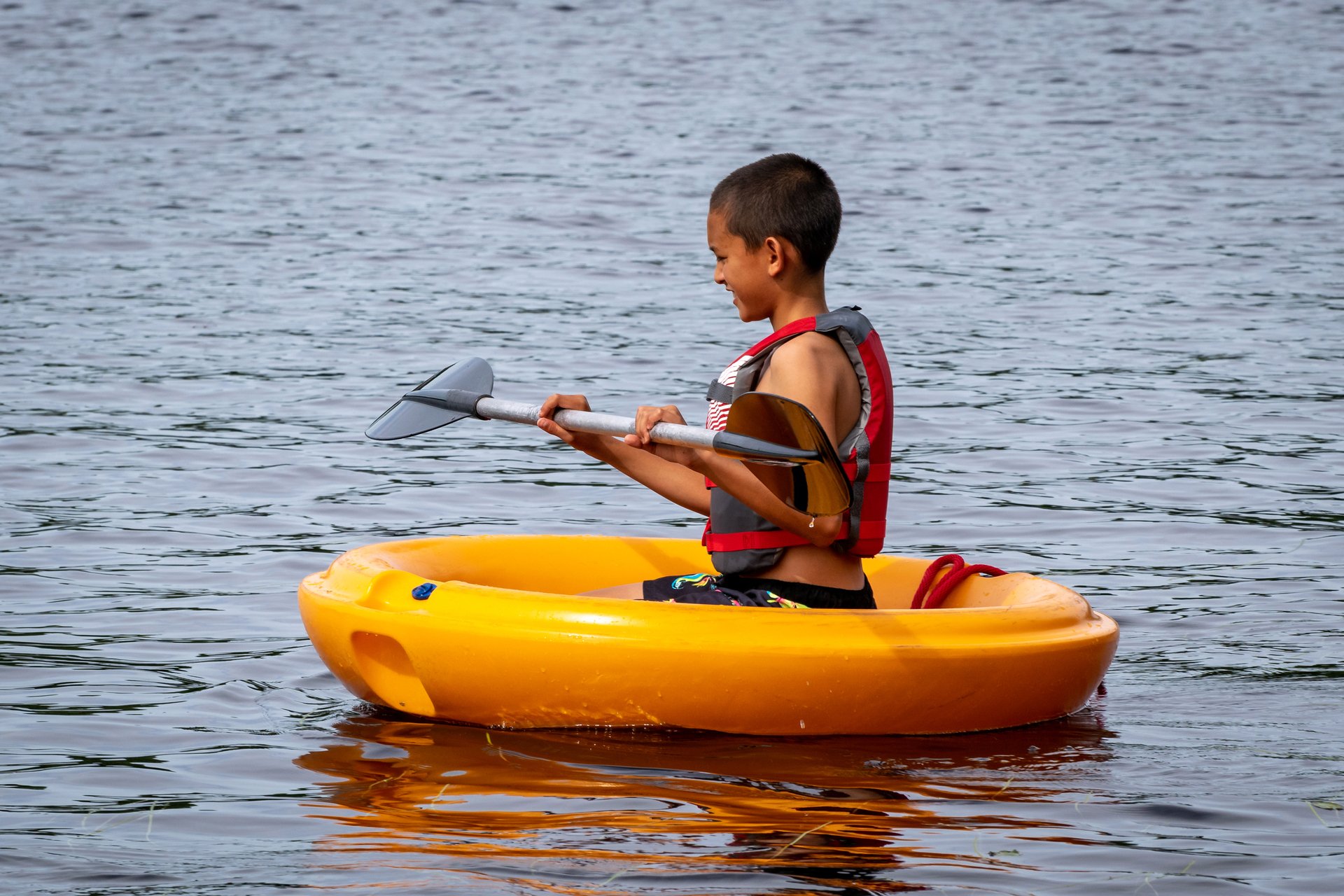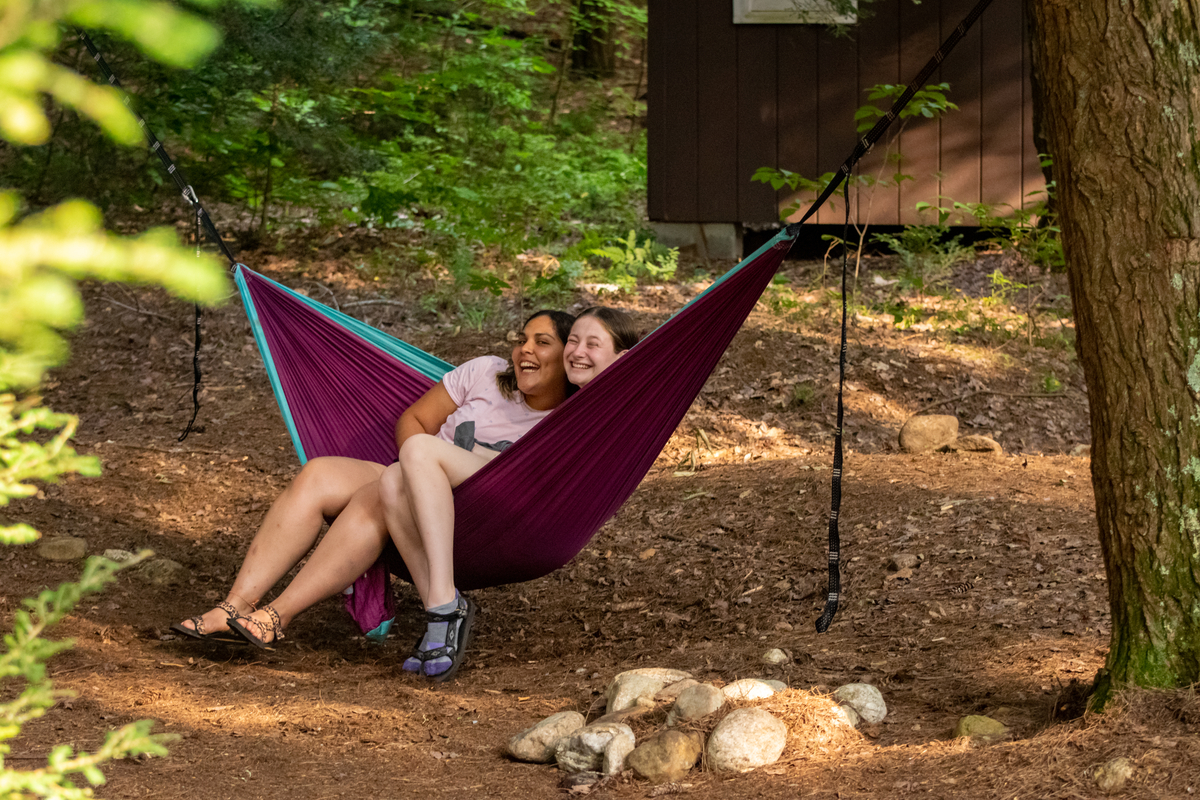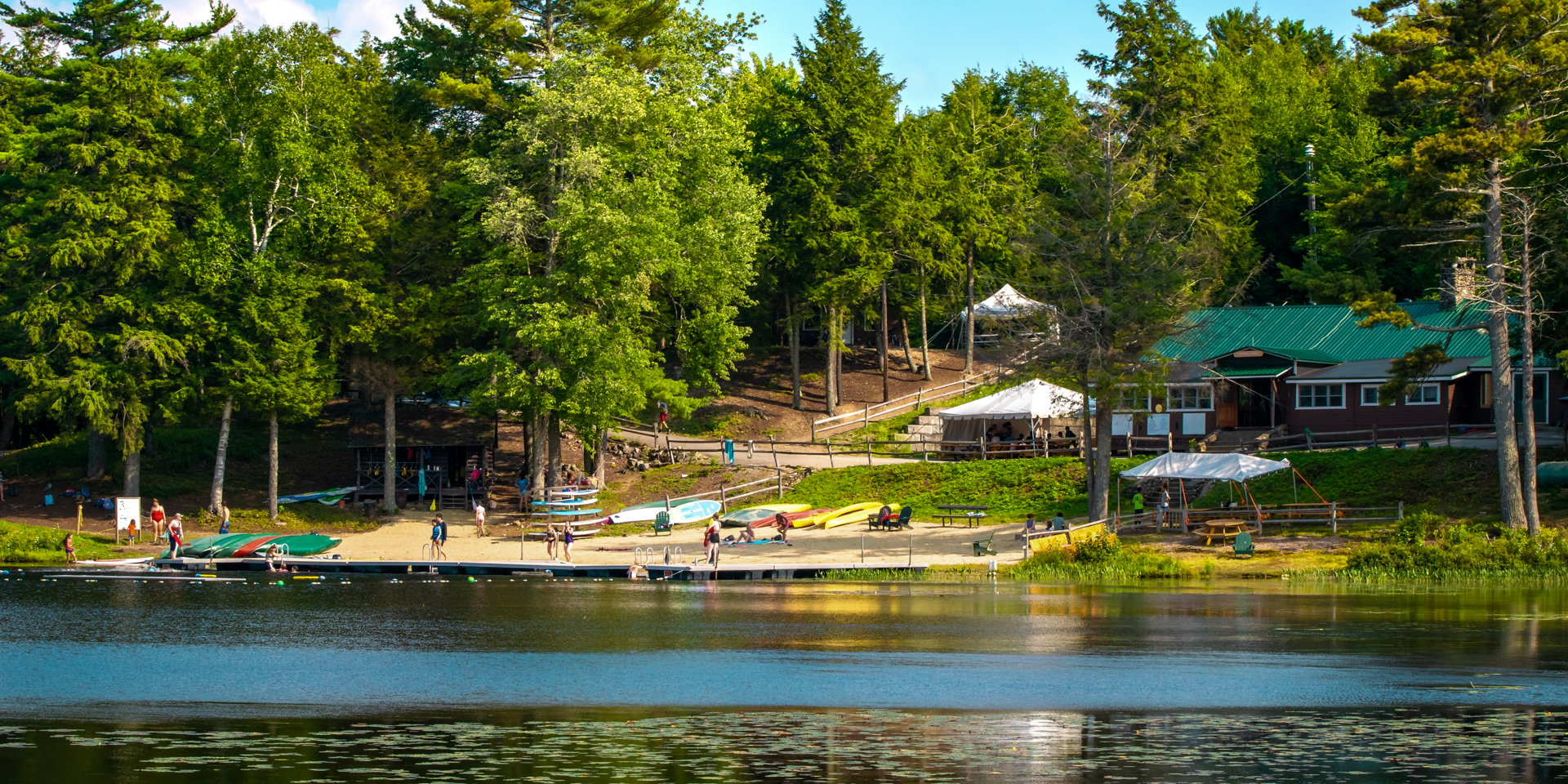Located in southern New Hampshire, Wildwood is a one-of-a-kind camp for youth ages 9–17, where campers come together to discover the natural world; take a break from busy schedules and technology; and get outside to do what kids do best—have fun!
Wildwood encompasses forests, fields, and wetlands for outdoor play and exploration. Campers explore trails, high and low ropes challenge courses, an archery range, and playing field. Our waterfront along Hubbard Pond is the backdrop for countless summer experiences and magnificent sunsets.
We strive to create a safe, inclusive, and caring camp environment where each person is respected and supported in their learning and growth. Learn about our commitment to diversity and inclusion
Registration for Wildwood summer 2026 will open on December 8, 2025.
Contact
P.O. Box 826
27 Vining Road
Rindge, NH 03461

Camp Programs
From traditional overnight camp to specialty camps to family camp and lots in between, you can choose your adventure at Wildwood.

Camp Life
Each unit is a group of similarly aged campers of the same gender that forms the primary community for campers at Wildwood. Campers and counselors live, learn, and play together in this shared space.
Prepare for Camp
Get ready for camp this summer with a variety of resources, packing lists, and the most current camp handbook for families.
Our Staff
At Wildwood, we pride ourselves on our high-quality staff, a diverse group of talented and caring individuals for summer and year-round positions.
Support Kids to Camp
If you or a young camper in your life have had a special experience at Wildwood and you want to share the gift of nature with even more children, please consider donating today.
See What Makes Wildwood Special
Stay Connected with Wildwood
Get the latest updates on the goings-on at camp!



